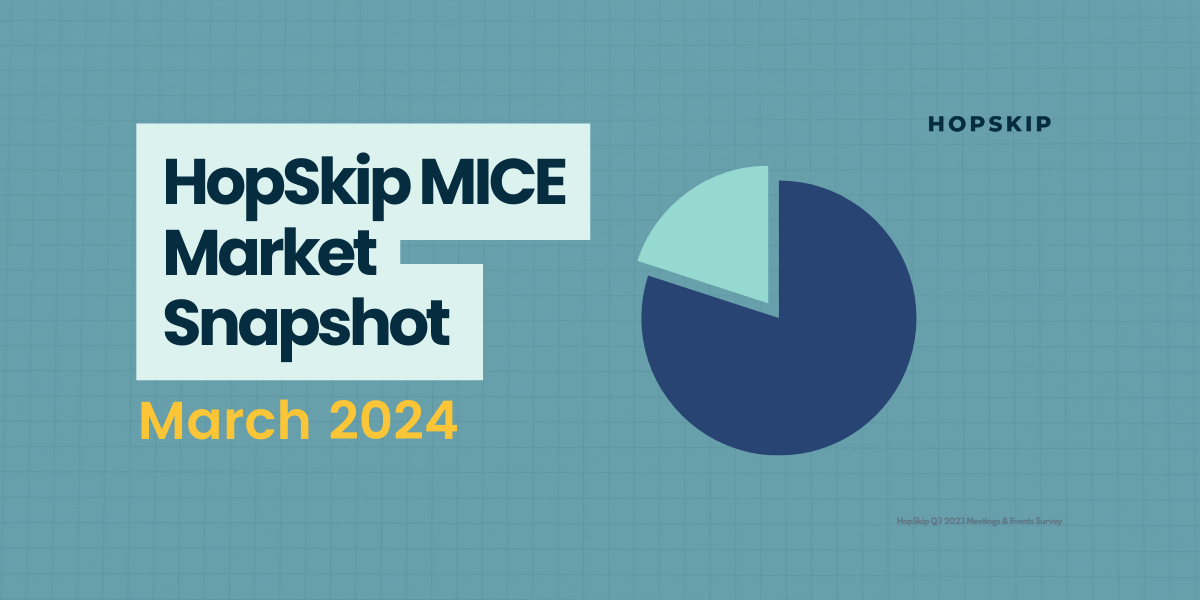MICE Monthly Market Snapshot- March 2024
Explore the latest industry trends in hotel sourcing. Discover insights to navigate the evolving landscape for successful and cost-efficient events.

Every month HopSkip analyzes data from around the meeting and events industry to understand trends in the market. HopSkip picks a few of the most relevant trends from research conducted throughout the month, and we share those data points with the rest of the community.
HopSkip MICE Market Snapshot- March 2024
Data Point #1:
59% of planners say that the top three challenges they face in Q1'24 when sourcing events are inflexible contract terms, hotel availability, and delayed responses to RFPs.
.png?width=660&height=660&name=March%2024-%20demio%20(1).png)
Source: HopSkip
What this stat tells us:
The data point reveals that a significant majority, nearly 3 out of 5 event planners, encounter considerable obstacles in securing a hotel for their event.
These challenges encompass rigid contract terms, struggles securing space at top-tier hotels, and delays in receiving responses to their requests for proposals (RFPs) from hotels. This highlights the importance of improving communication and negotiation flexibility within the hospitality industry to meet the changing needs of event planners.
Data Point #2:
Top 5 markets for groups and meetings bookings are growing at 15.5% YoY
.png?width=660&height=660&name=March%2024-%20top%205%20markets%20(3).png)
Source: Knowland
What this stat tells us:
Year-Over-Year (YOY) growth in event volume, an interesting highlight emerges for Tampa-St. Petersburg, Florida. This market has gained recognition for hosting national associations and healthcare events, with its remarkable 20% increase in event volume driven significantly by these sectors.
This indicates that the city has established itself as a premier destination for national associations and healthcare-related conferences and events, showcasing its strategic positioning and infrastructure development to cater to large-scale professional gatherings within these industries.
Conclusion:
The findings from these data points provide valuable insights into the changing landscape of meeting and event venue sourcing and the regional factors influencing its success.
On the one hand, event planners' challenges, such as inflexible contract terms and delayed hotel responses, underscore the need for more adaptable and responsive strategies in the hospitality and event planning industries.
On the other hand, the increasing event volume in specific U.S. markets, particularly in Tampa-St. Petersburg, FL, emphasizes recognizing regional strengths and catering to the diverse needs of event sectors like national associations and healthcare.
These data points collectively suggest that to thrive, the event planning industry must prioritize enhancing flexibility, responsiveness, and tailored approaches to meet the unique demands of each market.
By addressing systemic challenges planners face and leveraging the specific attributes that make regions attractive for different events, the industry can pave the way for a more resilient and dynamic future in event planning.
Every month HopSkip analyzes data from around the meeting and events industry to understand trends in the market. HopSkip picks a few of the most relevant trends from research conducted throughout the month, and we share those data points with the rest of the community.